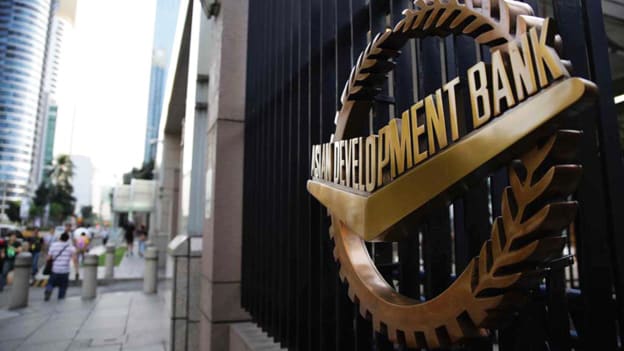Officials from the Asian Development Bank (ADB) have approved this week a $1 billion assistance package to help the government in Nur-Sultan contain the spread of the novel coronavirus in what is Central Asia’s largest country and mitigate the negative impact of the pandemic.
The financial support is expected to aid a comprehensive health policy response, social protection and employment protection measures, as well as an economic stimulus plan developed by the Kazakh government.
‘‘ADB will work with Kazakhstan’s authorities towards the introduction of key structural reforms going forward, including to improve public sector management, governance and institutions, provide access to finance for small businesses, support green finance, and boost agricultural productivity,” said ADB President Masatsugu Asakawa, according to a statement issued by the bank on June 25.
The number of coronavirus cases in Kazakhstan has risen to 20,319, after 569 more cases were reported on Saturday, according to the local media reports. At the same time, asymptomatic cases, which have not been included in official statistics since early June, have reached 14,548. As of today, 150 coronavirus-related fatalities have been recorded, while 12,548 recoveries have been accounted for.
Kazakhstan’s government declared a state of emergency on March 16, imposing a national quarantine and ordering the closure of all state borders. The special regime was extended twice, on April 14 and 27.
But strict social lockdown measures introduced in early spring have significantly impacted Kazakhstan’s economy, affecting small and medium-sized enterprises (SMEs) engaged in hospitality, education and other service sectors. Women suffered the most as they account for more than 65 percent of the workforce in these sectors. In addition, a sharp drop in oil prices has halved the value of nearly 80 percent of the Kazakhstan's exports.
With an aim to contain the country’s losses as it emerges from a recession, the government has allocated 6 trillion tenge or $14 billion as an economic response, of which 1 trillion tenge or $2.4 billion will be invested into infrastructure projects across the country, while creating 255,000 jobs.
The package of economic measures includes liquidity support for local companies through guaranteed loans, deferral of tax payments and other fiscal incentives for SMEs and workers in sectors most affected by the lockdown, such as tourism. In addition, health workers in Kazakhstan are supplied with personal protective equipment and being paid additional bonuses, while health care for Covid-19-related hospitalization and medication remains free of charge. Kazakhstan’s authorities have also been arranging for the distribution of food packages to over one million socially vulnerable citizens and extending assistance to poor households and workers who lost income due to the pandemic.
Officials from the Asian Development Bank are working closely with the International Monetary Fund, the World Bank, the United Nations and other development partners to help Kazakhstan cover its expenses.
‘‘Given the size of needs for external support, ADB is working to secure co-financing of its assistance package from the Asian Infrastructure Investment Bank for $750 million,’’ according to the Bank.
ADB’s assistance to the Central Asian country is provided under its ‘‘Covid-19 Active Response and Expenditure Support (CARES) Program’’ funded through the Covid-19 pandemic response option (CPRO). CPRO was created on April 13 as part of ADB’s $20 billion assistance for Covid-19 response of developing member countries.
The Asian Development Bank is a long-time partner to Kazakhstan, working with the country since 1994, shortly after it became independent. As of today, the volume of sovereign and non-sovereign loans as well as guarantees approved by the Bank accounts for more than $5 billion.







 The Mine Action Agency of Azerbaijan (ANAMA) reported on Thursday the discovery of a significant amount of explosives in the Khojavand district of ...
The Mine Action Agency of Azerbaijan (ANAMA) reported on Thursday the discovery of a significant amount of explosives in the Khojavand district of ...
 Iran’s Foreign Minister, Hossein Amir-Abdollahian, has labeled a foiled Israeli drone attack in certain parts of the country as a "failure" for Isr...
Iran’s Foreign Minister, Hossein Amir-Abdollahian, has labeled a foiled Israeli drone attack in certain parts of the country as a "failure" for Isr...
 Iran has refuted reports of alleged damage to Shimon Peres Negev Nuclear Research Centre located southeast of Dimona, Israel, during the recent air...
Iran has refuted reports of alleged damage to Shimon Peres Negev Nuclear Research Centre located southeast of Dimona, Israel, during the recent air...



